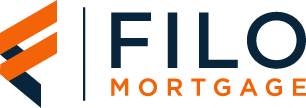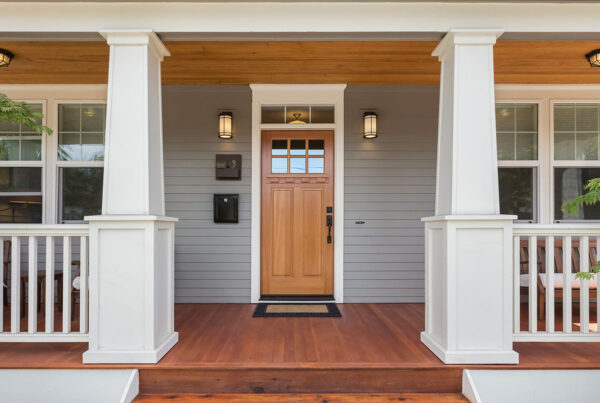If you’re ready to become a first-time homebuyer, congratulations! Buying your first home is an exciting milestone, and although there is a lot to celebrate, it’s also important to learn as much as possible about the process. It can be overwhelming for a first-time homebuyer, especially when it comes to obtaining a mortgage, but we’re here to answer any questions you may have and simplify the process for you.
As a first-time homebuyer, you’ll want to explore the different options available, as well as the first-time homebuyer programs that are available for 2021. Some of the most common types of mortgages that first-time buyers obtain include:
Conventional mortgages
Conventional mortgages, also known as conforming loans, are the most popular among home buyers and generally provide the best pricing. Conventional loans are funded by independent lenders and then sold to government-sponsored agencies including Freddie Mac and Fannie Mae. Conventional mortgage loans enable you to borrower at higher loan sizes than other mortgage types. In 2021, the maximum conforming loan limit in most counties is $548,250. In the most expensive areas such as in California, a conforming mortgage loan can be up to $822,375. You can use a conventional mortgage to buy a house in any area of the United States. For first-time homebuyers putting down at least 20 percent for their home purchase, Private Mortgage Insurance (PMI) is waived, which helps to lower overall monthly payments. Qualifying first-time homebuyers who would prefer to put less money down, however, could apply for a specific type of conventional mortgage. Also known as a 97 LTV loan, this type of conventional mortgage may give eligible first-time homebuyers the opportunity to put as little as three percent down.
Conventional private mortgage insurance offers various payment options including what’s called borrower paid and lender paid. Borrower paid mortgage insurance on a conventional loan can be canceled once you have obtained 80% equity in your home. This is not the case for an FHA loan.
Lender-paid mortgage insurance is always paid for by the lender. The lender will increase the mortgage interest rate to include the mortgage insurance. While this can lower your monthly payment it is generally better financially to choose borrower paid mortgage insurance. Note that lender paid mortgage insurance cannot be canceled because it is already incorporated into your interest rate.
FHA mortgages
FHA mortgages are another good option for first-time homebuyers who are looking to avoid a large down payment.
First-time homebuyers don’t have the advantage of using the proceeds from a previously sold home towards their next home purchase, so they might have less free cash available for their down payment, making FHA mortgages a reasonable solution. FHA loans also tend to have more flexibility when it comes to lower credit scores and generally have less income documentation than conventional loans. All FHA loans come with both an upfront mortgage insurance premium and a monthly mortgage insurance payment. The upfront mortgage insurance can be rolled into your loan amount. Currently, the upfront mortgage insurance premium is equal to 1.75% of your loan amount.
The loan limits for FHA loans are typically less than that of conventional mortgages. In addition, FHA loans can only be used to purchase your primary residence. One would need to use a conventional loan to buy a second home or rental property.
FHA loans are backed by a government agency named the Federal Housing Administration.
VA loans
VA loans are another good solution for first-time homebuyers that don’t have as much liquid cash available to put down toward their purchase. Eligible for veterans, activity military members, and military spouses, VA loans do not require down payments. VA loans do impose funding fees, which is a one-time fee for originating the loan, but they can be rolled into the loan if preferred. While down payments are not required for VA loans, putting money down will help to lower your funding fee. Funding fees also start off lower for first-time homebuyers, making these loans a solid choice for qualifying borrowers looking to purchase their first home.
For 2021, VA loan funding fees for first-time homebuyers are as follows: 1.40 percent of the home’s purchase price (minimum of 10 percent down payment required), 1.65 percent of the home’s purchase price (minimum of 5 percent down payment required), or 2.3 percent of the home’s purchase (no down payment required).
USDA Loans
If you’re buying your first home in an approved rural area and you want to avoid making a down payment, you may qualify for a USDA loan. Backed by the United States Department of Agriculture, these mortgages do have income restrictions in order to qualify and also tend to be more lenient when it comes to credit criteria.
First-time homebuyer programs available by state
There are also specific incentives and programs available exclusively to first-time homebuyers that vary by state, so if you’re thinking about buying your first home this year, be sure to check out what your state may offer. From help with closing costs to down payment assistance and appealing interest rates, many state housing authorities offer tax credits and other forms of aid to first-time homebuyers. Some of these programs offer more than others, so if you’re on the fence about relocating to a new state, the available incentives may be able to help you decide. Borrowers working in certain industries may also be eligible to take advantage of unique first-time homebuyer programs available in their state.








